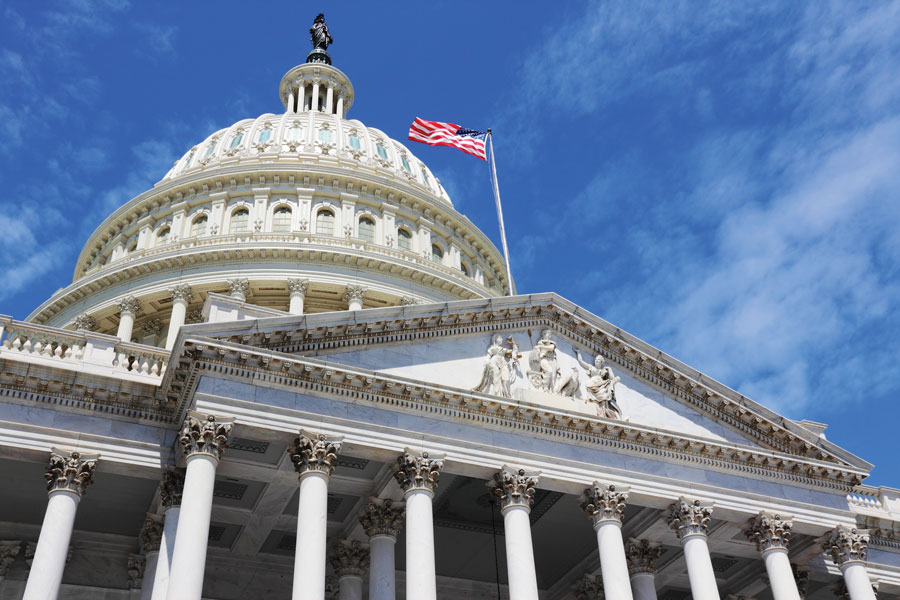

The House approved with strong bipartisan support Tuesday evening legislation designed to expand access to workplace retirement plans and increase retirement savings.
The Securing a Strong Retirement Act builds on the SECURE Act that Congress passed in 2019. Known as SECURE 2.0, the House passed the measure, 414-5, sending it to the Senate, where several retirement-savings bills are under consideration or about to be introduced.
The Senate could take up SECURE 2.0 or advance a similar bill and then work out differences between the House and Senate versions of the legislation in a conference committee. The Senate timeline is uncertain.
The 139-page SECURE 2.0 bill would raise the minimum age for required distributions from retirement plans to 75 from 72, expand automatic enrollment in 401(k) and 403 (b) plans and provide incentives for small businesses to establish retirement plans, according to a summary.
The measure contains dozens of provisions that were championed by Democrats and Republicans and garnered widespread support from interest groups ranging from AARP to the Insured Retirement Institute as well as from financial firms.
In a capital that is usually riven with partisan dissension, retirement-savings legislation consistently generates strong backing from both sides of the aisle. It gives lawmakers an opportunity for a win on an issue that can be a big concern for constituents -- not having enough money for their post-work years.
“This is transformative legislation,” said Rep. Richard Neal, D-Mass. and chairman of the House Ways and Means Committee, before the vote. “We are helping Americans prepare for a secure retirement.”
As an example, he cited a provision that allows workers to increase catch-up contributions to retirement plans, which Neal said would help them save for retirement while simultaneously working on other financial goals like paying for their children’s education.
“This bill goes a long way in addressing this country’s retirement crisis,” Neal said. “This legislation will become law, I hope, in the near future.”
The legislation particularly targets the millions of Americans whose employers -- often small businesses -- don’t offer a retirement program.
“We designed this bill to really focus on those who have not saved in the past and, unless we do something differently, are not going to be saving for the future,” said Rep. Kevin Brady, R-Tex. and ranking member of the Ways and Means Committee.
The bill’s many provisions provide plenty of touchstones for supporters to praise. Fidelity Investments highlighted one having to do with student debt.
“Securing a Strong Retirement Act takes an important step to help those individuals by allowing employers to make ‘matching’ contributions to a 401(k) plan while their employees make student loan repayments,” Kevin Barry, president of workplace investing at Fidelity, wrote in a March 25 letter to House leaders.
Supporters of the bill are now turning their attention to the Senate, where the chamber’s Health Education Labor and Pensions Committee earlier in the day held a hearing on retirement savings policy that previewed pending legislation. Both the Senate HELP and Finance committees will be considering legislation that could complement SECURE 2.0.
A strong lobbying push will continue to get a final bill through both chambers and enacted into law before the end of the congressional session in December.
“Today the U.S. House of Representatives passed one of IRI’s primary public policy objectives -- a retirement bill that further expands access to workplace retirement plans and protected lifetime income products,” IRI CEO Wayne Chopus said in a statement. “The bipartisan legislation will deliver measurable benefits to America’s workers and retirees who have anxiety over whether they will have sufficient retirement income that lasts throughout their golden years. Our efforts will now shift to the Senate to continue the positive momentum and get a bill to President Biden this year.”

Summit Financial unveiled a suite of eight new tools, including AI lead gen and digital marketing software, while MassMutual forges a new partnership with Orion.

A new analysis shows the number of actions plummeting over a six-month period, potentially due to changing priorities and staffing reductions at the agency.

The strategic merger of equals with the $27 billion RIA firm in Los Angeles marks what could be the largest unification of the summer 2025 M&A season.

Report highlights lack of options for those faced with emergency expenses.

However, Raymond James has had success recruiting Commonwealth advisors.
Orion's Tom Wilson on delivering coordinated, high-touch service in a world where returns alone no longer set you apart.
Barely a decade old, registered index-linked annuities have quickly surged in popularity, thanks to their unique blend of protection and growth potential—an appealing option for investors looking to chart a steadier course through today's choppy market waters, says Myles Lambert, Brighthouse Financial.
